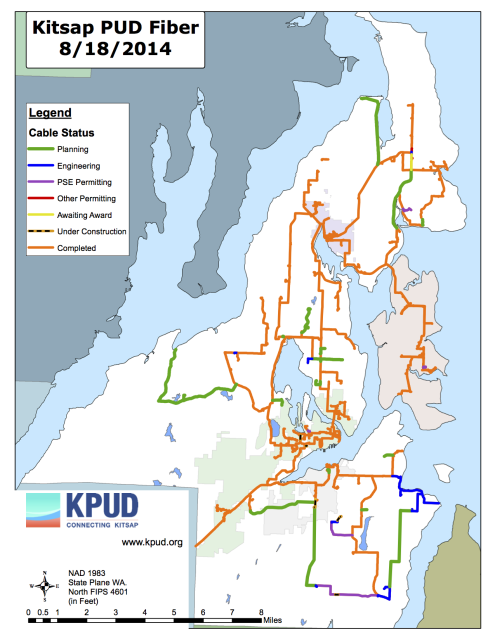By
Last year, we told you about Seth, who had recently relocated to Washington only to find out he might have to sell his new house because Comcast had lied to him about being able to provide the Internet connection he needs for his home office. And even though the county runs a high-speed fiber network not far from his property, current state law restricts consumers from buying access to that service. Recently proposed state legislation hopes to right that wrong and give counties the ability to serve residents when Comcast and others refuse to.
Current Washington state law allows for municipalities to own and operate broadband networks, but they can only sell wholesale access, meaning that customers must purchase so-called “last mile” service through a third party, even if it’s only a few yards from the existing fiber line to the house being connected.
In Seth’s story, Comcast twice told him that his house was already connected to their cable broadband network. It wasn’t, and never had been. Likewise, CenturyLink’s database showed Seth’s address as being part of their decent-speed DSL service. Again, it was not.
Through some clever red-tape wrangling (and no small personal expense), Seth and the Kitsap County Public Utility District [PUD] were eventually able to get him service, but it’s not a process that every unconnected homeowner would, or could, be able to navigate.
“That shouldn’t have to happen,” State Senator Christine Rolfes of Kitsap tells Consumerist. “It’s absolutely vital that every citizen has the ability to get online.”








